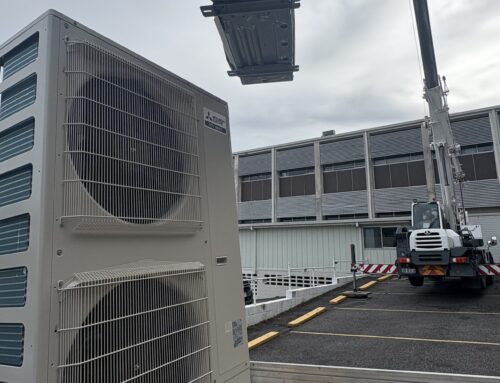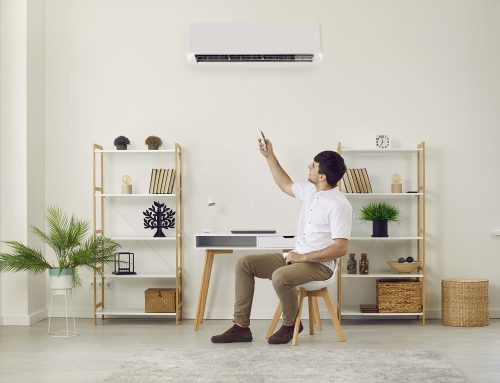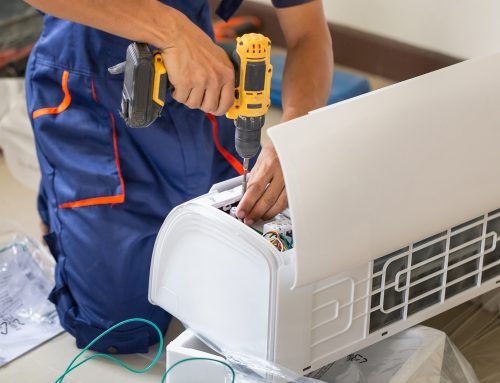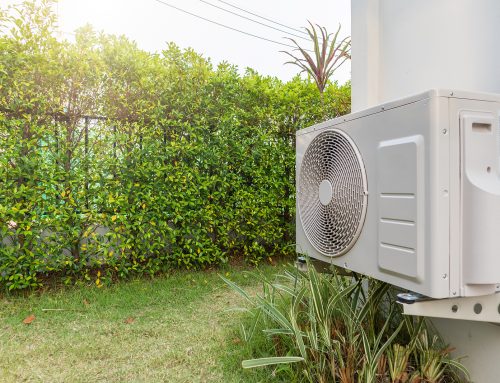Of course, homes aren’t the only properties in Brisbane that need effective heating and cooling to stay comfortable all year-round!
Commercial properties – in particular, offices – also need air conditioning. And owing to the size and complexity of the systems used in office buildings, it’s even more important that you get this process right here.
Just one question: what does air conditioning installation for offices involve?
What temperature should the office aircon be?
There’s a wealth of research out there from different sources that all say the same thing: the temperature at the office can directly affect how much work gets done.
Indoor temperature (and air quality, and humidity… the list goes on!) can have an effect on workers’ productivity, focus, and output.
And we aren’t just talking about the swelteringly hot or freezing cold days, either.
According to the Compliance Code for Workplace amenities and environment, the ideal temperature for office-based work is between 20ºC and 26ºC, depending on the time of year and dress code.
According to some studies, temperatures below this range can increase typos by 44% and can halve the amount of words typed.
And of course, it isn’t just temperature either – humidity comes into play as well, with the same studies placing the ideal relative humidity at between 20% and 60%, again depending on your office dress code.
We know, it can be hard to find that sweet spot when you’re trying to appease dozens of people in an office space. Some suggestions include:
- Sticking with the recommendation above
- Adjusting monthly where required
- Enforce suitable clothing (including shoes)
- Ensure no one is directly impacted by units (e.g. being hit directly by a split system)
- Make small, gradual changes
- Talk to your team and get their input!
So now you know why temperature matters in the office – now it’s time to start talking about the details…
Which type of AC is best for offices?
When it comes to the best aircon, there’s no clear-cut answer. A lot of considerations come into play when it comes to determining the most appropriate system for your unique space.
And just as with any other type of property, that decision will have come down to the specifics of your office – namely:
- Your floor plan and size
- Window size and orientation
- Whether your office is open- or closed-plan (separated by walls and doors)
- The type of activity taking place
- The operating capacity of your business (e.g. 24-hour facilities)
As a general rule however, we’ve noticed that a lot of smaller offices, converted homes, and offices in shopping strips tend to use solutions very similar to most homes in Brisbane. In such cases, we can mirror the design and installation project of homes for many smaller office configurations.
However, for larger offices, we need to think bigger! In these cases, our commercial and industrial air conditioning solutions are more appropriate and effective. The coverage and power of a commercial cooling system doesn’t only ensure the entire property is cool, but it also ensures consistency throughout the office.
That way, each corner, desk and workstation is within the ideal temperature range, ensuring that everyone is performing at their best.
The difference between commercial cooling systems and ducted aircon
While the principle is the same, commercial HVAC systems are much larger and more powerful. Imagine your home ducted cooling and heating system, but scaled up to compensate for the larger room volumes.
With these types of systems, the outdoor unit is usually roof mounted, and often the size of a van or made up of multiple smaller domestic-type outdoor units combined together.
You know the types of systems you see at the tops of skyscrapers, office blocks and shopping centres? That’s the type of system we’re talking about here.
Of course, not all offices are so large that they need systems this large. If yours does however, it pays to find an air conditioning team that specialises in installing this type of commercial air conditioning in Brisbane (like us!)
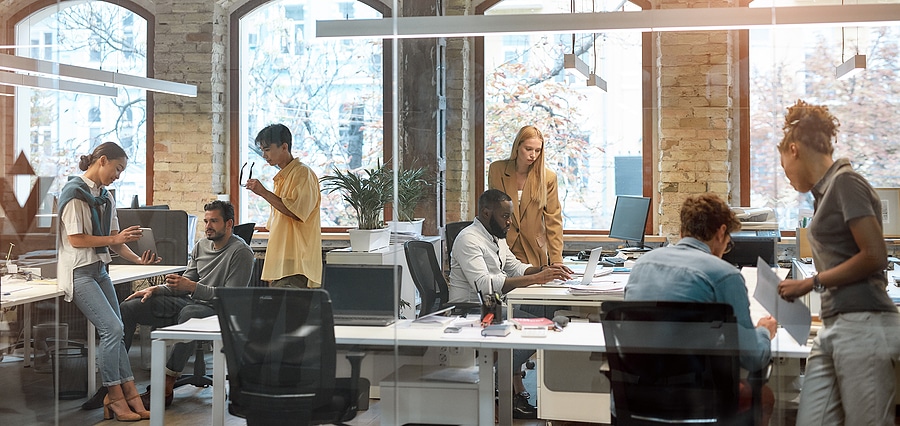
VRV/VRF air conditioning: what is the most reliable air conditioning system?
While this technology is filtering down to domestic air conditioning systems, it made its first appearance in commercial air conditioning systems.
With commercial properties – offices included – most of your air conditioner’s runtime is spent maintaining a steady temperature. While your office may necessitate a powerful system, said system doesn’t have to run at 100% if it’s just maintaining the current temperature.
VRF/VRV technology was invented to compensate for this.
For the vast majority of the working day when the system is just keeping the temperature stable, these types of systems reduce the amount of refrigerant being cycled to meet demand, thus reducing the amount of power being consumed.
With office air conditioning, this can save a considerable amount of power – over 50%, easily.
Combine that with how long office aircon usually runs for, and it’s little wonder that this technology is so prevalent in office cooling systems!
How does air conditioning work in an office?
We’ve talked about system design plenty of times before, and while we won’t go over it again, this time we’ll focus on some of the unique considerations that go into how air conditioning systems are designed to work in different office spaces.
While the ideal temperature for staff members is between 22ºC and 26ºC, they aren’t the only things that need to be considered. There are many other components of a business besides offices…
What type of cooling system is most efficient?
The most efficient types of systems for commercial properties are those which offer strategic zoning. This clever feature allows you to take complete and precise control over the temperature in multiple parts of a building. Not only does this help regulate the temperature and keep more people comfortable, but it can have a drastic impact on your bills!
Below are a few examples to help illustrate the benefit.
Say your office also has its own server hub – these can generate a lot of heat. As such, your server room can require much more cooling to compensate.
In cases like this, we might decide to make your server room its very own air conditioning zone, with a separate thermostat and temperature sensors to ensure that sensitive computer equipment is operating at a safe temperature.
Another example might be offices that are connected to showrooms or display floors. Oftentimes, the office section is smaller, and cools down faster.
Of course, the showroom section doesn’t cool as quickly due to its size, meaning that the temperature in the office section plummets!
In this case, we might make your office section its own zone, allowing you to control the level of cooling there independently of your showroom.
These are just two of the ways that cooling offices differ from domestic cooling – and two reasons why you should leave this in the hands of a professional.
Struggling to keep your team comfortable?
If you’re struggling to meet the requirements of different areas in your commercial property, manage people’s individual preferences, and ensure responsible energy use, don’t hesitate to reach out to our team today.
Whether you need air conditioning repairs in Brisbane or more comprehensive solutions, we can work closely with you to enhance your existing setup and help you maximise the benefits of a smarter commercial system.
Expert cooling solutions for homes and offices throughout Brisbane
There are a lot of things you need to consider when looking for the right commercial solution for air conditioning. And it all starts with choosing the right aircon team to support you every step of the way.
Our team works across Brisbane as well as beyond, supplying heating and cooling systems to office buildings big and small all over south-east Queensland. More than this though, we offer strategic advice and system design tailored to meet the unique needs of your commercial space.
If you need support with new system design or would like to organise on-site air conditioner service in Brisbane, get in touch with our team today. Tri the best with Tri-Tech: call (07) 3394 0222 or request a quote.


